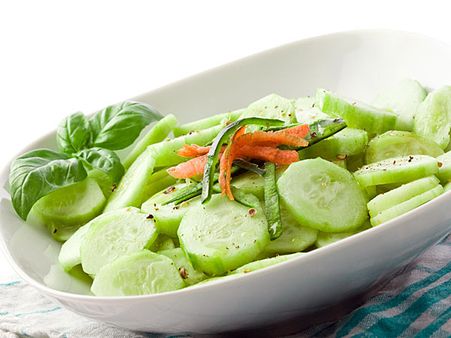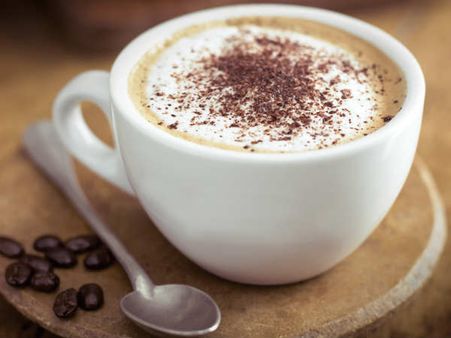Just In
- 42 min ago

- 1 hr ago

- 2 hrs ago

- 3 hrs ago

Don't Miss
- Movies
 Did Kareena Kapoor And John Abraham Put An End To Years Of Rivalry? All You Need To Know About Their Cold War
Did Kareena Kapoor And John Abraham Put An End To Years Of Rivalry? All You Need To Know About Their Cold War - Education
 Gujarat Board Class 10, 12 Results To Be Declared Soon, Check out for more Details
Gujarat Board Class 10, 12 Results To Be Declared Soon, Check out for more Details - Finance
 Indian Rupee Hits Record Low Amid Middle East Concerns And Fed Rate Speculations
Indian Rupee Hits Record Low Amid Middle East Concerns And Fed Rate Speculations - Sports
 RCB IPL 2024: Three Players Royal Challengers Bengaluru Must Drop for the Season
RCB IPL 2024: Three Players Royal Challengers Bengaluru Must Drop for the Season - News
 SC Rebukes Yoga Guru Baba Ramdev For 'Irresponsible Attitude' In Patanjali Case
SC Rebukes Yoga Guru Baba Ramdev For 'Irresponsible Attitude' In Patanjali Case - Technology
 Motorola Edge 50 Series Launching Globally Today - Check Price, Specs
Motorola Edge 50 Series Launching Globally Today - Check Price, Specs - Automobiles
 Who's At Fault? The Complex Liability Of Autonomous Vehicles
Who's At Fault? The Complex Liability Of Autonomous Vehicles - Travel
Maximise Your First Indian Adventure With These Travel Tips
Ramadan 2023: Foods To Eat And Avoid For Fasting Associated Dehydration
The holy month of Ramadan has arrived and Muslims from around the world have started observing 'Roza' or fasting (without water) for the whole month from sunrise to sunset, followed by a meal later after the dawn.
According to a study, the frequency of eating and quantity of water decreases during the month of Ramadan, which can lead to reduced energy, loss of weight and primarily, dehydration. [1]

Another study has shown that the absence of food and fluid during the daylight hours of Ramadan month can cause huge body water deficit and lead to a reduction in both cognitive and physical functions. [2]
Though the water loss of a single day is just one per cent without food and water intake, factors like hot weather, physical activities and long duration (a full month of Ramadan) can cause substantial fluid losses in the body and major dehydration problems.
To avoid dehydration while fasting in Ramadan, we have listed down the names of foods to eat to keep the body hydrated, as well as foods that you must avoid to prevent the risk of dehydration. Take a look.


Foods To Eat
1. Watermelon
A study has shown that watermelon contains around 92 per cent of water per 100 gm, along with natural antioxidants such as lycopene, citrulline and ascorbic acid; vitamins such as Vitamin B1 and B6, and minerals such as magnesium and potassium. The presence of high water content and mineral in watermelon may help balance the electrolytes in the body and prevent dehydration. [3]
Water content in watermelon according to USDA: 91.45 g (100 g)
2. Cantaloupe
Cantaloupe contains around 90-99 per cent of water content. Additionally, the peels and seeds of cantaloupe are also rich in polyphenols, flavonoids, tannins and carotenoids that provide a plethora of health benefits to the body, along with keeping aside the risk of dehydration. Cantaloupe also contains electrolyte minerals such as calcium and potassium that may help balance electrolytes of the body. [4]
Water content in cantaloupe according to USDA: 90.15 g (100 g)
3. Lettuce
Lettuce is one of the green veggies that is packed with a high amount of water, along with fibre and other nutrients. This veggie makes for an excellent source to beat the heat of the summer and prevent dehydration while fasting. Lettuce is also known to prevent dry skin and protect against the sun.
Water content in lettuce according to USDA: 94.61 g (100 g)


4. Cucumber
Cucumber is a good source of potassium, folic acid and vitamin C. According to a study, cucumber is good for moisturising the skin and hydrating the body. It also contains the important mineral silica which is a vital component of connective tissues such as tendons, muscles, bone and ligaments. Cucumber can help prevent dehydration during fasting due to its high water content. [5]
Water content in cucumber according to USDA: 95.23 g (100 g)
5. Tomato
Tomato is packed with high content of water and helps prevent dehydration. It makes for excellent summer food and can be consumed during the month of Ramadan to hydrate the body and keep it healthy. The important antioxidant lycopene in tomato also helps maintain multiple body functions.
Water content in tomato according to USDA: 94.78 g (100 g)
6. Skim milk
A study has mentioned that skim milk is more hydrating compared to water as the prior is retained by the body for a longer time than the latter. Retention of this fluid in the body for a long time helps maintain the water levels of the body and prevents dehydration, especially in summer. Therefore, if you are fasting, skim milk will make for the best food. [6]
Water content in skim milk according to USDA: 90.8 g (100 g)


Foods To Avoid
1. Alcohol
Alcohol or alcoholic beverages such as beer and spirits act as natural diuretics. Meaning, they contain a substance that promotes diuresis, including forced diuresis, by increasing the production of urine. When urine production increases, the risk of dehydration also increases. Therefore, alcohol must be avoided when you are fasting, also considering that it is forbidden during the holy month of Ramadan. [7]
2. Coffee/Tea
Caffeinated drinks such as coffee and tea, when consumed in high amount, can cause dehydration. This is because caffeine plays the role of adenosine receptor antagonist and reduces the reabsorption of sodium by the body cells, which is an essential electrolyte. In a moderate amount, caffeine may not dehydrate, but in a large dose (greater than 500 mg), it can behave as a diuretic and cause dehydration. [8]

3. High-calorie sports drink
Individuals who are related to sports and are observing fasting during the month of Ramadan are often recommended sports drinks. These sports drinks often have higher glucose content that may help maintain the energy levels of the athletes for a prolonged period. However, in some individuals like diabetics, high calories can increase the sugar levels in the body and cause dehydration. [9]
4. Artificial fruit juices
Drinking homemade fruit juices without sugar can help treat dehydration up to a certain extent, however, synthetic fluids such as artificial fruit juices may give you instant energy, but cause dehydration due to the high sugar content in them. Also, due to the low sodium and potassium content in them, they may cause stomach problems.

5. High salt foods
Consuming too many salty foods such as chips, sauce and processed meats can pull water from the body cells and cause dehydration. Also, as the frequency of sweating is more during the summer season, excessive sodium and water could be lost from the body. Avoid salty foods to prevent dehydration, however, don't avoid all as sodium is also necessary to restore total body water and fluid-electrolyte balance. [10]
-
 yoga spiritualityEid ul-Fitr 2024: Step By Step Guide To Perform Eid Prayer To Express Gratitude To Allah
yoga spiritualityEid ul-Fitr 2024: Step By Step Guide To Perform Eid Prayer To Express Gratitude To Allah -
 yoga spiritualityHappy Eid ul Fitr 2024 Wishes: Eid Mubarak Shayari, Messages, Greetings, Images, Twitter And Instagram Status
yoga spiritualityHappy Eid ul Fitr 2024 Wishes: Eid Mubarak Shayari, Messages, Greetings, Images, Twitter And Instagram Status -
 fashionEid-Ul-Fitr Mehendi Designs 2024: From Arabic to Indian Designs; Here's 6 Stunning styles for Eid
fashionEid-Ul-Fitr Mehendi Designs 2024: From Arabic to Indian Designs; Here's 6 Stunning styles for Eid -
 yoga spiritualityAlvida Jumma Mubarak 2024 Wishes: Messages, Quotes, Greetings, Images, Posters, Twitter, And Instagram Status
yoga spiritualityAlvida Jumma Mubarak 2024 Wishes: Messages, Quotes, Greetings, Images, Posters, Twitter, And Instagram Status -
 yoga spiritualityWhen Is Laylat-al-Qadr 2024 In India? Know Shab-e-Qadr Date, Time, Dua Beliefs And Significance
yoga spiritualityWhen Is Laylat-al-Qadr 2024 In India? Know Shab-e-Qadr Date, Time, Dua Beliefs And Significance -
 yoga spiritualityWhen Is Eid ul Fitr 2024? Date, Rituals, History, Significance Of Ramadan Eid
yoga spiritualityWhen Is Eid ul Fitr 2024? Date, Rituals, History, Significance Of Ramadan Eid -
 yoga spiritualityRamadan 2024: Why Is Taraweeh Prayer So Special? Can You Offer Taraweeh Prayers At Home?
yoga spiritualityRamadan 2024: Why Is Taraweeh Prayer So Special? Can You Offer Taraweeh Prayers At Home? -
 yoga spiritualityRamadan 2024: What Are First Ashra Dua, Second Ashra Dua, And Third Ashra Dua During Ramzan
yoga spiritualityRamadan 2024: What Are First Ashra Dua, Second Ashra Dua, And Third Ashra Dua During Ramzan -
 healthWhy Do Muslims Use Dates To Break Fast In Ramadan? Answer Lies In History, Spirituality And Modern Science
healthWhy Do Muslims Use Dates To Break Fast In Ramadan? Answer Lies In History, Spirituality And Modern Science -
 healthExclusive: How Kidney Patients Can Fast During Ramadan Without Compromising Their Health
healthExclusive: How Kidney Patients Can Fast During Ramadan Without Compromising Their Health -
 yoga spiritualityRamadan 2024 City-Wise Time Table For India, Know Sehri, Iftar Timings In Delhi, Lucknow, And Other Cities
yoga spiritualityRamadan 2024 City-Wise Time Table For India, Know Sehri, Iftar Timings In Delhi, Lucknow, And Other Cities -
 yoga spiritualityRamadan 2024: Wishes, Messages, Images, Greetings, Texts, WhatsApp And Facebook Status
yoga spiritualityRamadan 2024: Wishes, Messages, Images, Greetings, Texts, WhatsApp And Facebook Status


 Click it and Unblock the Notifications
Click it and Unblock the Notifications



